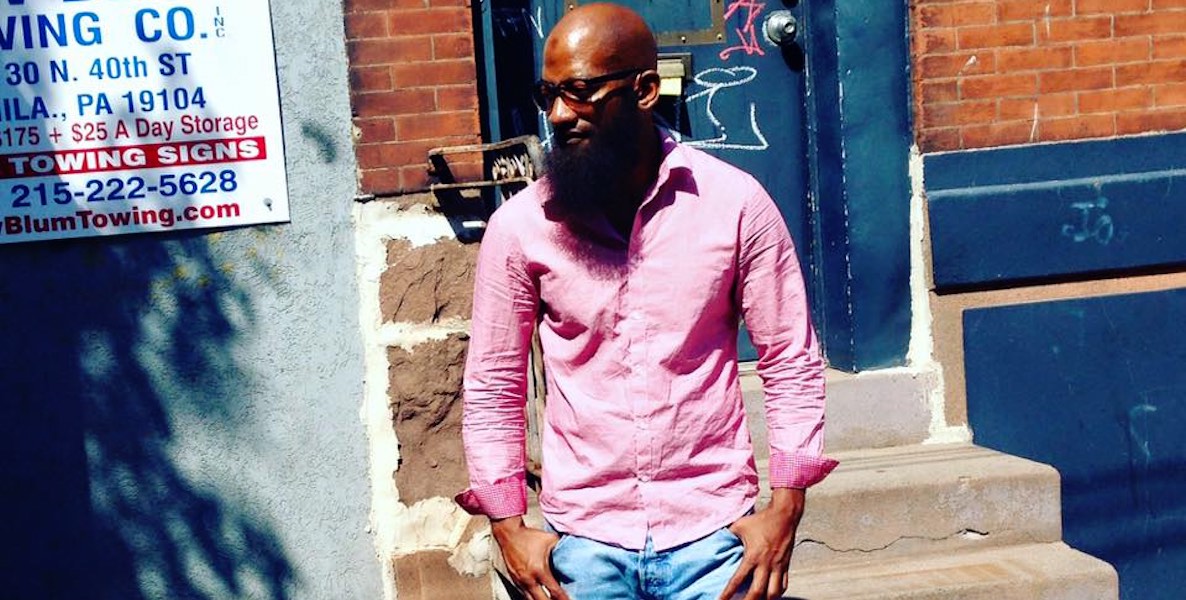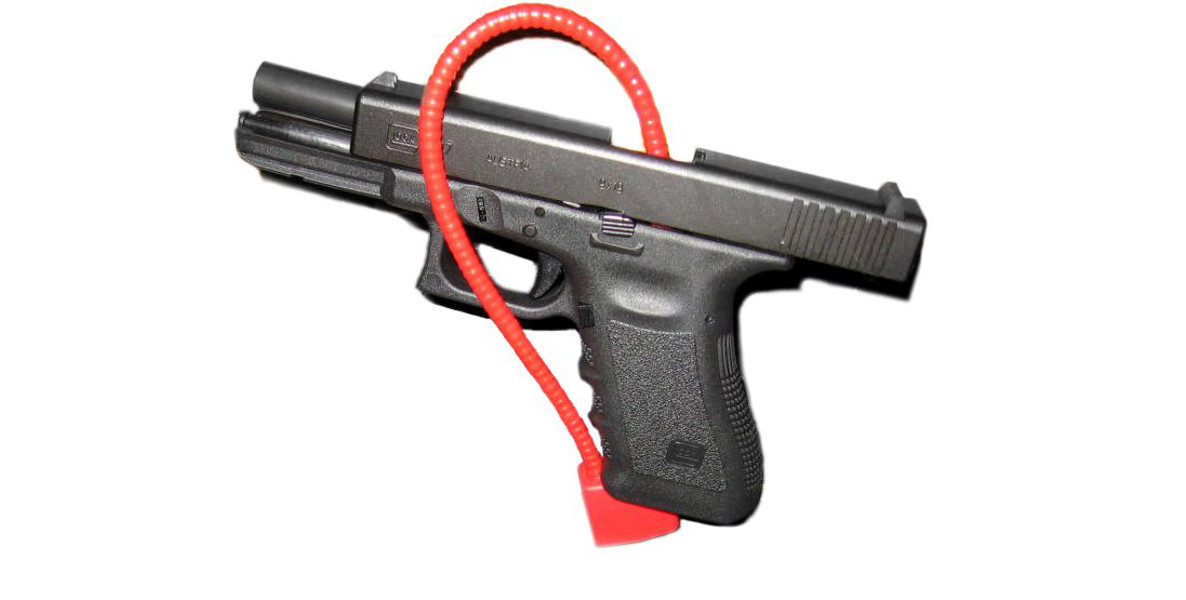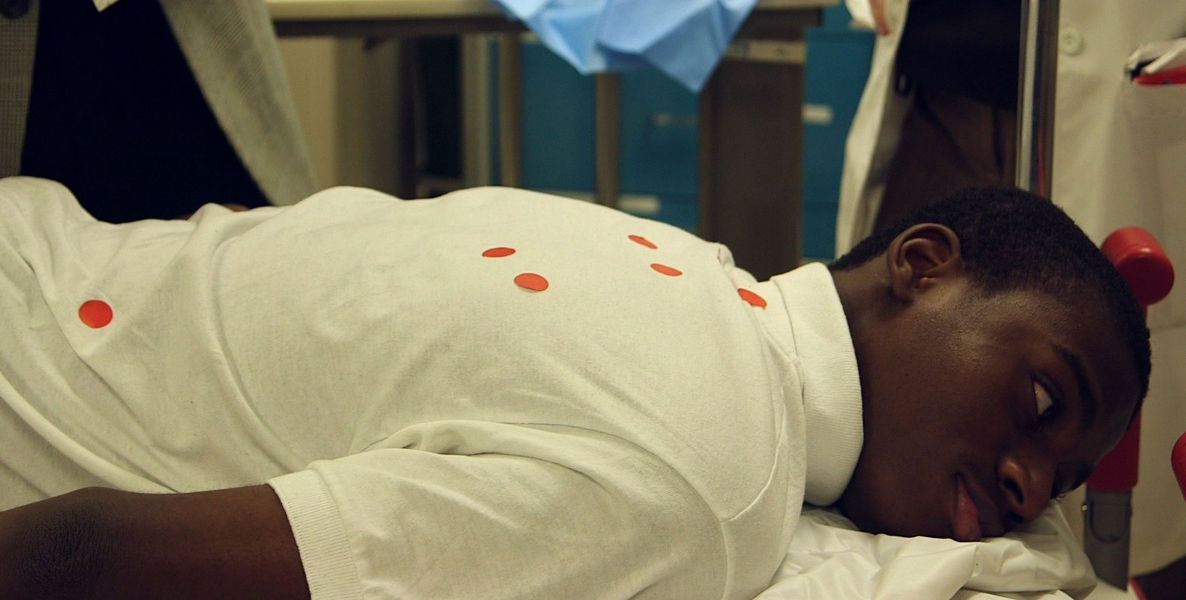At Jazz U Up II barber shop in South Philly last month, willing patrons got a little extra with their shave and a haircut: A free gun lock, courtesy of barber Will Little.
They shouldn’t have been surprised. Little, 46, has dedicated the last decade-plus of his life to advocating against violence, in particular the gun violence that he has witnessed firsthand. In his latest campaign, Little took on shootings among children who find guns in their homes. Hence the gun locks, which, as we reported in June, have been shown to prevent suicides and accidental shootings.
Thanks to Little’s work in August, 50 to 100 gun locks were distributed to gun owners around Philadelphia. He received them via a donation from the Philadelphia Anti-Violence Coalition, one of many organizations he works with to spread his message of peace.
For Little, peace did not come easy. In 1989, during a gun battle at 20th and Christian Streets, Little shot and killed a teenager from a rival gang. He spent the next decade behind bars, deciding to change his life. He became a model inmate, mentoring young men who were incarcerated with him, and vowing to make sure other black youth didn’t follow in his footsteps.
Since his release, Little has run after-school mentoring sessions at schools and community centers around Philadelphia. But it wasn’t until 2014 that his message took on a power that has resonated far beyond a cautionary tale. Little’s victim had a family, in particular an older brother who had vowed revenge, in the way of the streets. For more than a decade, Lamont Hatton followed Little, waiting for his chance to kill the neighborhood’s new role model, even as his revenge started eating away at him. Finally, in 2014, he arrived unannounced at Jazz U Up, walked over to Little—and forgave him.
“I was like, Praise God,’” Little recalls in a FOX-29 report about the men. “That’s always what you want, to be forgiven, especially for something like that.”
Soon after, Little started Redemption Forgiveness Peace (R.F.P.), through which he and Hatton tell their story in high schools, and teach young men and women how to become entrepreneurs, rather than killers or victims. He released a line of T-shirts emblazoned with the slogan “Peace Live In It” as a way to advance the cause of peace within his community. And he’s worked with Temple Hospital’s Cradle 2 Grave, a program that takes teens into trauma units to show them what happens when doctors try to save the life of someone who’s been shot.
We caught up with Little this week by telephone to chat about his gun lock giveaway and the life-changing event that led him down the path to community activism.
THE PHILADELPHIA CITIZEN: Why gun locks at a barber shop of all places?
LITTLE: I was trying to find potential ways to stop shooting in the community—especially save the lives of children who are finding guns in their homes. When I’m at work, I’m in contact with the community on a grassroots level. I’m in touch with a lot of people who possess guns legally and illegally, so I gave the gun locks out and showed people how to use them.
Donate gun locks, or help buy themDo Something
THE CITIZEN: Who did you give them to?
LITTLE: Anyone who came in the salon; anyone on the street who came by who needed one. We gave them to all kinds of people—bike riders who were riding past on their bikes who needed one, ministers, correctional officers who may have guns without safety locks on them, individuals who carry guns or have guns in their homes that they need to lock up—so anyone who possessed a gun, or knew somebody who had a gun. I have a large following on Facebook, so I posted it on my page and people came through the shop.
THE CITIZEN: Why is gun violence so important to you?
Gun violence statistics in PhiladelphiaCheat Sheet
I ended up going to jail for murdering another kid. When I was in jail I changed my perspective on life and decided I wanted to save lives. I started the Anti-Violence Movement, where I go into prisons and go into schools to tell my story about overcoming violence and conflict. Any kind of positive information you can get out there is important.
THE CITIZEN: You’ve already given out all 50 gun locks that you got from the Philadelphia Anti-Violence Coalition. Do you have plans to distribute more?
LITTLE: I hope to get more so I can continue giving them out in the community. I know a lot of people are still in need of them. Hopefully we can get more funds to purchase more and give them out.
THE CITIZEN: Besides gun locks, what else could be done to prevent gun violence in Philadelphia?
The city needs to allocate more money to grassroots organizations such as mine. We’re the ones on the streets, dealing with the madness. All of the money we use comes from our own pockets. There’s a lot of government money allocated to big corporations, but they’re not on the forefront, actually dealing with the issues of violence and poverty like we are. We don’t have any help. We’re out here every day, dealing with shootings right after they happen, dealing with families who lose loved ones. Even though the city loves our work, and recognizes what we do, they don’t put their money where their mouth is, even though the programs we’re doing are working.
Header Photo: Facebook/Will Latif Little





